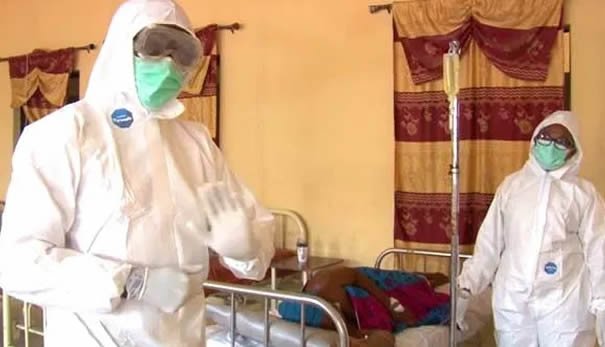Korede Abdullah in Lagos
Fatality Rate Climbs Despite Fewer Cases
Nigeria has recorded 145 deaths from Lassa fever so far in 2025, with a worrying case fatality rate (CFR) of 18.6 per cent — an increase from 17.6 per cent for the same period in 2024, according to the Nigeria Centre for Disease Control and Prevention (NCDC).
The NCDC disclosed the information in its latest report through its official website on Saturday in Abuja.
“Late presentation of cases, high treatment costs, and poor health-seeking behaviour continue to fuel the high fatality rate,” the NCDC said in its latest update.
As of Epidemiological Week 25, the country has confirmed 781 cases out of 5,943 suspected across 20 states, with Ondo, Bauchi, Edo, Taraba, and Ebonyi accounting for over 90 per cent of infections.
Lassa fever, first identified in 1969 in Lassa, Borno State, remains endemic in Nigeria and causes annual outbreaks. Symptoms range from mild fever and joint pain to severe bleeding from the mouth, nose, and gastrointestinal tract, with fatality in about 20 per cent of cases if treatment is delayed.
“The disease predominantly affects young adults between 21 and 30 years old, with slightly more males impacted,” the NCDC noted, adding that although no new infections were recorded among healthcare workers this week, 23 have been infected so far this year.
Across West Africa, hundreds of thousands contract the disease annually, and hearing loss affects about 25 per cent of survivors.
Partners Rally as Nigeria Boosts Response
To curb the spread, the NCDC says it is working closely with partners like WHO, US CDC, ALIMA, and IHVN, intensifying surveillance, contact tracing, and community awareness campaigns.
“We have deployed rapid response teams, launched an IPC e-learning platform, and distributed updated guidelines nationwide,” the agency said. Despite these efforts, the NCDC warns that poor sanitation and low awareness in high-risk areas remain serious hurdles.
It urged Nigerians to keep their homes rodent-free, practice good hygiene, and seek early medical help for symptoms, while ongoing vaccine trials offer a glimmer of hope for better prevention in the future.



